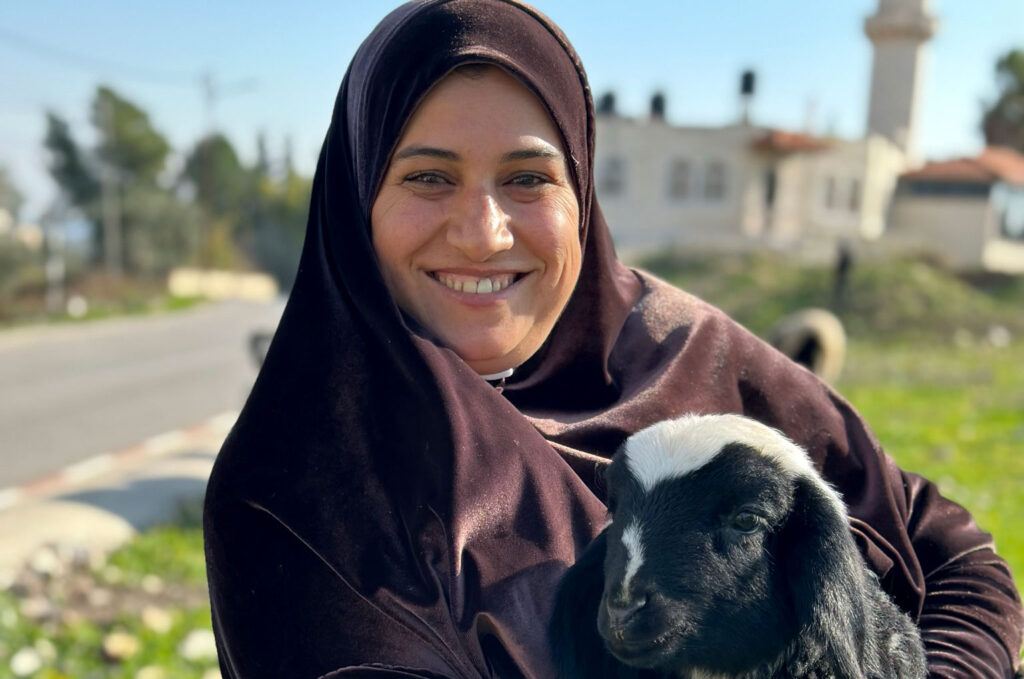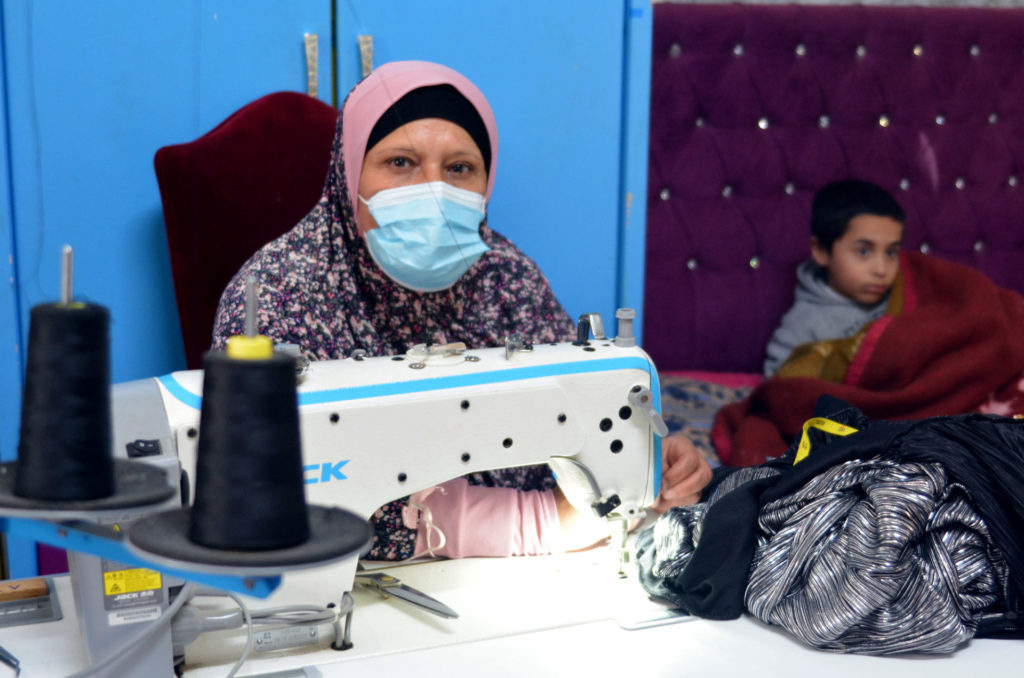Jan, 2010
The Breast Cancer Awareness project launched October 1, 2009 by Anera in cooperation with ICF International is educating West Bank residents of Ar-Ram and Tulkarem about breast cancer and the importance of early detection.
With community health workers from the Palestinian Medical Relief Society (PMRS), the project is spreading the word about breast self-examinations and giving access to screening and diagnostic services.
Around 8,000 women have benefited from outreach activities and clinical-based health education sessions and screening. The education sessions include comprehensive information and statistics about this specific type of cancer. Risk and prevention factors, self-examination, mammogram and ultra-sound examinations are also discussed in detail.
After an informative health education session on early breast cancer detection and the importance of regular examination, Reem, a woman from Abu-Dis, said “I didn’t know the proper way of doing this examination. I never knew that I should feel the lower part of my breasts or how to properly maneuver my hand over them”. Showering that night, Reem felt a lump in the lower part of her left breast. “Terrified, I rushed to my husband who calmed me and encouraged me to immediately seek a doctor’s advice.”
Scared and in disbelief, Reem headed to Abu-Dis Women’s Cooperative the next morning, where she had attended the breast cancer lecture. She asked for Nariman, the community health worker who had given instructions about breast examinations the day before. Reem informed Nariman what she found. Nariman reassured her and helped her sign-up for a professional examination. Reem went to the Arabic Center in Abu-Dis where she got an ultrasound as well as a mammography. Experts did confirm the lump and immediately sent her for biopsy.
Fortunately for Reem, the result of the biopsy was benign. Greatly relieved, she now knows the importance of performing periodic self exams and educating herself about breast cancer.
Another case involves Samia from Al-Azariya, who attended the same health education session given by Nariman. The session helped her understand the magnitude of the problem and most importantly taught her to perform a breast self examination. Like Reem, after attending the session, Samia performed a self breast examination, as she had been suffering from persistent heaviness in her left breast for quite a while. She later received a clinical breast exam and was referred for a mammography. The results of the mammography showed that she had a suspicious mass. After taking a biopsy test, she was diagnosed with early stage of breast cancer. She underwent surgery and has begun treatment. Hopefully, she will recover fully.
There are thousands of women in Palestine who are not as lucky as Reem and Samia, and whose bodies are silently suffering from breast cancer, but they are hesitant to seek help. Many Palestinian women are uninformed about breast cancer or are even discouraged to find out about it. And many refuse to know about it or confront it out of fear.
“There is no awareness about this specific type of cancer. Many women mix it with cervical cancer and some even believe it is contagious,” said Nariman, PMRS Community Health Worker. “There is always a big hesitation and even refusal among women to attend our lectures. There is a lot of fear surrounding breast cancer. This extends to men, as well.”
Men play an integral part in breast cancer awareness since cancer could affect their wives, daughters, sisters or mothers. In Abu-Dis village, the community health worker convinced a group of nine men to attend one of her breast cancer sessions. At first, men seemed hesitant to listen, but their interest and interaction gradually grew as she explained to them the magnitude of the problem and asked them to share stories they had heard or experienced regarding breast cancer. The men were surprised to learn that breast cancer can affect men as well as women. At the end of the session, the men expressed their desire to continue having these sessions with their wives present. This session was a breakthrough for the project because it successfully reached men in a traditional society and their reaction was positive.


